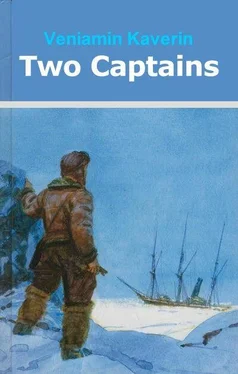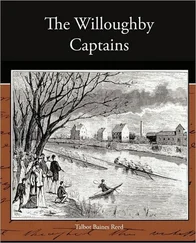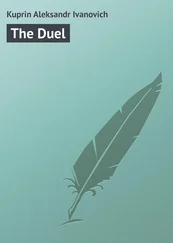"-An event, which at any other time, the whole world would have been talking about," he continued, "and the remains of the national hero-for such would have been the recognition my cousin merited-would have been brought in state to the capital and interred amid a vast concourse of people."
I said that Captain Tatarinov's remains rested on the shore of the Yenisei Bay, and that he himself would probably not have wished for a better resting place.
"Without a doubt. But I did not mean that, I meant the exclusiveness of his destiny. The fact that oblivion had been dogging his steps all his life, and but for us"-he said "us"-"there would hardly be a person in the world who would have known who he was and what he had done for his country and for science."
This was about the limit, and I was on the point of saying something rude to him, when the door opened and a girl came out of the interrogating officer's room and invited me in.
I had a feeling all the time that if the examiner had not been so young and attractive, she (for it was a woman) would not have questioned me in such a pointedly dry manner. But then, her interest stimulated as I gave my story, she eventually dropped her official tone.
"Are you aware. Comrade Grigoriev," she began after I had told her my age, occupation, whether I had ever stood trial before, and so on, "what business I have summoned you on?" I answered that I was.
"You once made a deposition." Evidently she meant my interrogation at N. Base. "Some things there are not quite clear, and I want to talk to you first about this." "I'm at your service," I said. "Here, for example."
She read out several passages in which I had given my conversation with Romashov at his flat word for word.
"Am I to understand that when Romashov wrote his statement against you he was a tool in the hands of some other person?"
"That person has been named," I said. "It is Nikolai Antonich Tatarinov, who is waiting outside to see you. As to who was the tool and who the hands, I cannot say. That's your problem, not mine."
I lost my temper a bit, probably because she had politely referred to Romashov's denunciation as a statement.
"Well then, it is not quite clear what purpose Professor Tatarinov could have had in trying to stop the search party. He is an Arctic scientist and you would expect any plan for the search of his lost cousin to have his deepest sympathy."
I said that Professor Tatarinov could have pursued a number of ends. First of all, he was afraid that a successful search for the remains of the St. Maria expedition would confirm my accusations. Then, he was no Arctic scientist, but simply a type of pseudo-scientist who had built his career on the books dealing with the story of the St. Maria expedition. Therefore, any competition in this field affected his vital interests.
"Did you have serious reasons for hoping that a search would confirm your accusations?"
I answered that I did. But that no longer came into question, as I had found the remains of the expedition, and among them direct proofs which I intended to make public.
It was after this reply that my interrogator quickly climbed down from her official perch.
"Found the proofs?" she queried with genuine astonishment. "After so many years? Twenty, or even more, I believe?"
"Twenty-nine."
"What could have been preserved after twenty-nine years?"
"A good deal," I said.
"Did you find the Captain too?"
"Yes."
"Alive?"
"Of course not. We know exactly when he died-it was between the 18th and 22nd of June, 1915."
"Tell me about it."
I couldn't tell her everything, of course. But Professor Tatarinov waited long to be received, and no doubt had plenty of time to think things over and talk things over with himself before taking my place at the desk of this handsome, inquisitive woman.
I told her of things indictable and things non-indictable because of the offence having been committed so long ago. An old story! But old stories live long, much longer than appears at first sight.
She listened to my story, and though still an interrogator, she was now an interrogator who, together with me, read the letters which had been carried into our yard with the spring freshet, who together with me had copied out passages from polar exploration reports, and together with me had flown teachers, doctors and party functionaries out to remote Nenets areas. Navigator Klimov's diaries had already been perused and the old boat-hook found-the final touch, as I had then believed, completing the picture of evidence. Then I came to the war and fell silent, because everything we had lived through rose before me in a boundless panorama, in the depths of which there just glimmered that idea which had stirred me so strongly all my life. It was hard to explain this to an outsider, but I explained it.
"Captain Tatarinov appreciated what the Northern Sea Route meant for Russia," I said. "And it's no mere accident that the Germans tried to cut it off. I was a soldier when I flew to the place where the St. Maria expedition had perished, and I found it because I was a soldier."
Chapter Eight
MY PAPER
Everybody came to hear my paper, even Kiren's mother. Unfortunately, I do not remember the exact words of the little speech of welcome, with quotations from the classics, with which she greeted me. The speech was a bit longish, and it amused me to see the look of resignation and despair on Valya's face as he listened to it.
I seated Korablev in the front row, directly facing the speaker's desk-1 was accustomed to looking at him when I made speeches.
"Well, Sanya," he said gaily, "I'll hold my hand like this, palm downward, and you keep an eye on it when you speak. When I start drumming my fingers, it means you are getting excited. If I don't you're not."
"Ivan Pavlovich, you're a dear."
I wasn't in the least excited, though I did feel a bit nervous, wondering whether Nikolai Antonich would come or not.
He did. After hanging up my maps I turned round and saw him in the front row, not far from Korablev. He sat with his legs crossed, looking straight in front of him with an immobile expression. I thought he had changed these last few days-his face had a hangdog sort of look, with sagging jowls and a thin, wrinkled neck showing high above the collar. It was very pleasant, of course, when the chairman, an old, distinguished geographer, before calling on me to speak, himself said a few words about me. I even regretted that he had such a quiet voice. He said that it was to my "talented tenacity" that Soviet Arctic science owed one of the most interesting pages-and I took no exception to this either, especially as the audience applauded, loudest of all Kiren's mother.
I ought not, perhaps, have made such a long preamble dealing with the history of the Northern Sea Route, even though it was an interesting history.
I spoke about this rather lamely, often halting and forgetting the simplest words, and generally humming and hawing, as Kiren said
afterwards.
But when I came to our own times and gave a general outline of the military significance of the North, I caught a glimpse of Katya far down the dark isle. She had been indisposed-having caught a cold-and had promised to stay indoors. But what a good thing, how splendid it was that she had come! It cheered me up immensely and I began to speak with greater confidence and assurance.
"It may seem strange to you," I said, "that in a time of war I should be talking to you about an old expedition, which ended nearly thirty years ago. It's now history. But we have not forgotten our history, and perhaps our main strength lies in the fact that war has not negated or arrested a single one of the great ideas which have transformed our country. The conquest of the North by the Soviet people is one such idea."
Читать дальше












